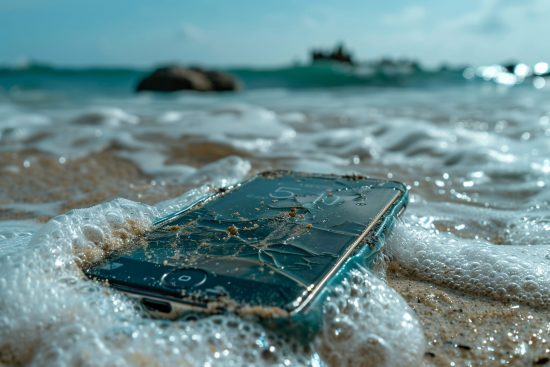In our effort to connect you with other projects and initiatives that fight against electronic waste, today we present to you the eWAsTER project and its circular system for e-waste management.
About the eWAsTER project
eWAsTER, part of the Interreg Euro-MED programme*, tackles the growing challenge of electronic waste (e-waste) across Mediterranean regions. The project promotes shared policies and coordinates business initiatives to transform e-waste from an environmental burden into a resource for sustainable development.
By developing eight Local Action Plans aligned with the EU Circular Electronics Initiative, eWAsTER helps regions transition from a linear to a circular economy. Partners from eight countries collaborate to protect the Mediterranean, recover valuable materials, and foster green jobs and innovation.
Focus area: recycling and reuse for a circular economy
eWAsTER focuses mainly on recycling and reuse, with a strong emphasis on building a coordinated circular system for e-waste management.
The project promotes the transformation of discarded electronics into secondary raw materials, reducing dependence on virgin resources and preventing pollution. It also supports reuse by encouraging the recovery of valuable components and materials within the Mediterranean economy.
While not the central focus, eWAsTER also aligns with the EU’s Circular Electronics Initiative, which promotes longer product lifespans, repairability, and eco-design.
In essence, eWAsTER aims to bridge the gap between policy and practice, creating integrated recycling and reuse systems supported by coherent governance and circular business models.
Key achievements
During its first implementation phase, eWAsTER has achieved several key milestones:
- Standardised e-waste data across partner regions using the joint MED Methodology, enabling consistent analysis and planning.
- Drafted eight Local Action Plans, tailored to regional needs and aligned with EU waste directives.
- Launched three pilot solutions now in testing:
- WEEE PROCURE – promotes eco-renting of electrical and electronic equipment, encouraging institutions and businesses to rent instead of buy, integrating repair and reuse in the process.
- WEEE BEHAVE – awareness and behaviour-change campaigns with schools, municipalities, and citizens to ensure proper e-waste collection and delivery to formal recovery channels.
- WEEE REUSE – supports social enterprises that give electronics and plastics a second life, creating inclusive green jobs.
These initiatives demonstrate how eWAsTER combines policy innovation with hands-on, local action; bridging the gap between circular economy theory and real-world application.
How to get involved
eWAsTER is built on collaboration, everyone has a role to play:
- Citizens and schools can participate by bringing their old devices to official collection points, choosing to repair or reuse rather than replace, and joining awareness campaigns such as WEEE BEHAVE.
- Businesses and public administrations can test new circular models like eco-renting through the WEEE PROCURE pilot or explore reuse partnerships that give discarded electronics a second life.
- Local authorities and policymakers can apply eWAsTER’s MED Methodology to design or improve waste management plans, embedding circularity in governance.
Each action contributes to reducing e-waste and promoting a greener Mediterranean. To learn more or follow the project’s progress, visit the official website: https://ewaster.interreg-euro-med.eu.
Partnering with EWWR
eWAsTER proudly takes part in the European Week for Waste Reduction (EWWR), recognising it as a key platform for sharing values of prevention, reuse, and circular thinking across Europe. The EWWR’s inclusive and open format allows any organisation or citizen to participate, amplifying the collective impact of thousands of local actions.
The project supports the EWWR’s mission to inspire lasting behavioural change and to showcase how even small community initiatives contribute to large-scale environmental progress.
eWAsTER advice to EWWR participants: keep fostering awareness, support policy change, and engage young generations in waste prevention. The most effective actions are those that combine everyday choices with long-term vision, helping build a circular future for Europe and the Mediterranean alike.
*The Interreg Euro-MED Innovative Sustainable Economy (ISE) Mission is a comprehensive initiative aiming to strengthen the Mediterranean’s transition towards a circular economy by fostering innovation, collaboration, and sustainable practices among quadruple-helix stakeholders. Through transnational cooperation, the ISE Mission seeks to establish a robust ecosystem that promotes the adoption of innovative solutions and supports their integration into policies and strategies across the region. The ISE Mission currently consists of 23 Thematic Projects (TPs) clustered in four focus areas (Marine Resources, Agri-food Systems, Industrial Transition, and Resource Valorisation) and 2 Governance Projects.
 EN (full site)
EN (full site) ITA
ITA FRA
FRA POR
POR ESP
ESP CAT
CAT DEU
DEU NED
NED HUN
HUN